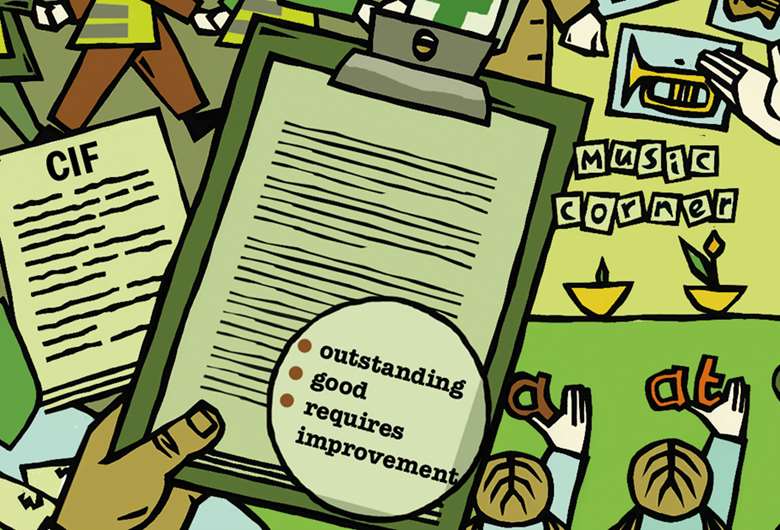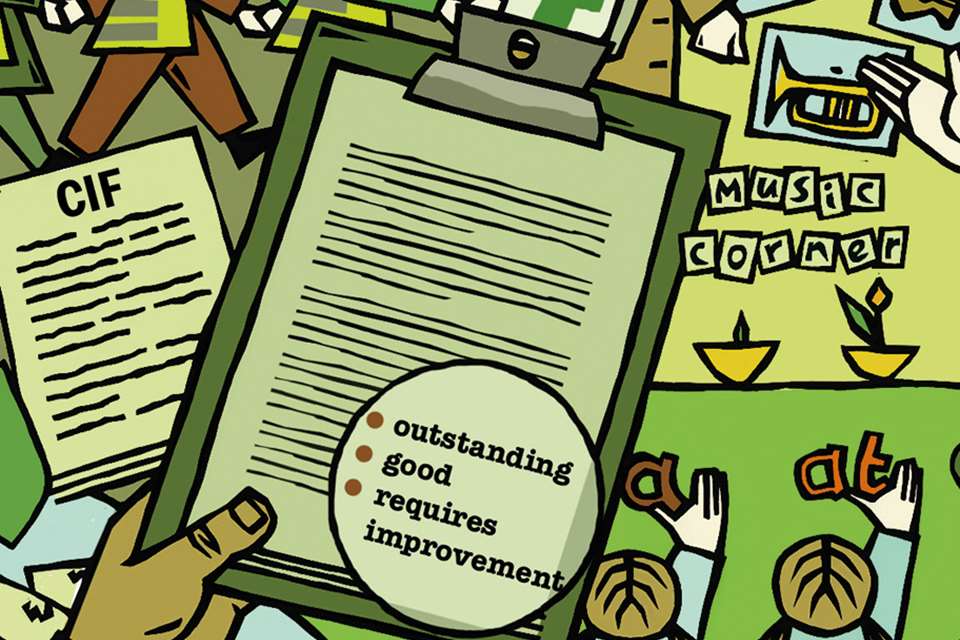Inspection: Part 11 – Before the Visit - Be prepared
Debbie Alcock
Monday, July 24, 2017
Settings should carry out a number of tasks before an inspection, explains former inspector Debbie Alcock, as well as be aware of what to do after it

Preparing for an inspection is never a bad idea. One key thing is to make sure you read the Early years inspection handbook. This is written for inspectors, telling them how inspections should be conducted, and contains what is called the ‘evaluation schedule’. This describes how and where inspectors gain evidence to support their judgements and it has a descriptors section helping inspectors to judge what they see.
It is a really good exercise for any management team to look through this and see where your judgement of your own setting is. It will help you to identify areas for improvement prior to an inspection taking place.
You can think about how you do this and how you can strengthen the achievement for all children. These descriptors also need to be embedded – waiting until the phone call will be too late.
In the same document, it describes how inspectors should prepare for the inspection, it states that websites should be viewed and also an internet search on the nursery should be done. Have you done this yourself to see what the inspector will see? Is your website up to date?
Inspectors are also asked to review the history of your setting as this may have a significant bearing on the inspection outcome. For example, if you have several historic actions on health and safety and the inspector arrives and sees more health and safety issues, they will be more likely to give a harsher judgement. If they decide that a welfare requirement notice is needed, the whole inspection will be ‘inadequate’. It is always wise to review the history of your setting using the Ofsted reports website to look at previous actions or recommendations that Ofsted has made.
Another good idea is to make sure your Self-Evaluation Form is updated (this should ideally be done on an ongoing basis), as your aims or values are achieved. For example, if you have chosen to train all your staff in first-aid, add this to your form.
The end of the inspection
When the inspector has completed the inspection, the provider will be invited to hear the feedback. Throughout the inspection the inspector’s comments and questions should give you an idea of how the inspection is going. Before you receive feedback, you should be given a last opportunity to present anything that will help you address or demonstrate the service you provide. The guidance that Ofsted provides to inspectors on this reads, ‘Towards the end of the inspection, depending on the size or layout of the provision, the inspector should talk to the provider to:
- discuss any inadequate or outstanding practice that has been seen
- ensure that the provider understands how the evidence substantiates the judgements
- allow the provider to raise any concerns, including those related to the conduct of the inspection or the inspector
- alert the provider to any serious concerns that may lead to the provision being judged inadequate.’
This occurs before formal feedback and allows you time to find documentation or other evidence. Once feedback has started, it is unlikely the inspector will be able to change judgements.
Feedback
The feedback should occur with either the provider or the nominated person present. The inspector should describe all their main findings, particularly those that show outstanding practice or where requirements have not been met. The inspector should make sure you understand what is being asked of you to do post-inspection.
Ofsted does not have an appeal system. You can complain to it if you are unhappy with the way the inspection was conducted, but not about the judgement itself.
Post-inspection
No matter the outcome of your inspection, there will be more work to do. Ofsted will add any outcomes such as Notices to Improve (actions) with a completion date to its database. Recommendations are also added. These add to the history of your setting and will remain on the database for the duration of your registration.
Ofsted used to receive a response letter where you could describe the action you had taken to meet its recommendations or notices. However, this is no longer present and many providers do not respond in writing to what they have done to meet any recommendations or notices. Despite this, I would strongly urge you to send a plan to Ofsted of what you have completed since its visit. Without this, the issues raised stay as a query on the system, which may have an impact on decisions if it receives a complaint.
Providers should make copies of the inspection report available to parents and, if a plan of action already taken or proposed is attached, this will allay any concerns they may have. If you receive an ‘inadequate’ with a notice to improve, your plan will need to be full and you should include timescales to meet the deadlines. Obviously, if you are planning any training for your staff, it may take time. But revising policies to make change can be done quickly.
If you receive an ‘inadequate’ with welfare requirements notices, the information will be different. You will receive the report as normal but you will also receive notices that include all the evidence seen, showing why Ofsted has taken the step of serving these. The timescales will be clear and failure to meet these is an offence. Inspectors will come back to monitor these as soon as the timescale has finished. If the monitoring visit shows you have met the requirements, then an inspection will go ahead in approximately six months from the date of the first inspection, not the monitoring visit.
Local authorities are now working so diversely with nurseries it is difficult to say what help they will or can give, but it is always advisable to ask for help if you are having difficulty making changes.
Further information
- For more on the new inspection framework and various handbooks, please see our management guide, www.nurseryworld.co.uk/common-inspection-framework
- Early years inspection handbook, https://www.gov.uk/government/publications/early-years-inspection-handbook-from-september-2015






